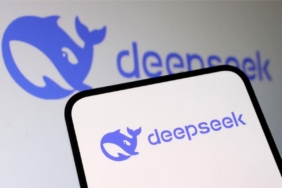Microsoft’s cloud computing division is facing a disappointing growth forecast, leading to a 4.5 percent decline in its shares during after-hours trading. Investors are increasingly concerned about escalating expenses, the challenge of deriving meaningful revenue from artificial intelligence, and the competition from lower-cost AI models emerging from China.
In its fiscal second quarter, Azure’s performance also fell short of Wall Street expectations, despite overall sales surpassing forecasts. Investors are eager for stronger outcomes from the substantial investments being made by major financial players to establish AI data centers and enhance their products with this burgeoning technology.
Recent claims made by Chinese competitors, asserting that they can produce AI technologies at more affordable prices than their U.S. counterparts, have raised concerns about a potential price war. For more than a year, Microsoft and other major tech firms have tested investor patience by investing heavily in AI with yet-unfulfilled promises of returns.
“It’s acceptable if those profits are projected a few years out, about three to five years,” commented Brian Mulberry, portfolio manager at Zacks Investment Management. “However, we really need to start seeing a clear roadmap for how these investments will be monetized.”
During a conference call with investors, Chief Executive Satya Nadella stated that operational costs are decreasing, noting improvements in performance metrics that show tenfold enhancements for the price as Microsoft fine-tunes its algorithms.
“As AI becomes more efficient and easier to access, we anticipate a significant surge in demand,” Nadella remarked.
Microsoft Chief Financial Officer Amy Hood projected that Azure’s growth for the current fiscal third quarter would fall between 31 percent and 32 percent, which is slightly below the 33 percent anticipated by Wall Street according to Visible Alpha’s data.
For the recently concluded quarter, Azure reported a revenue growth rate of 31 percent, falling short of the 31.8 percent estimated by Visible Alpha. Additionally, the company’s capital expenditures reached $22.6 billion (approximately ₹1,95,683 crore), exceeding analyst expectations of $20.95 billion (around ₹1,81,396 crore).
The rapid ascent of DeepSeek, a recent and formidable contender in the AI space, has triggered concerns regarding intense competition that may compel leading U.S. AI companies to reduce their prices.
Earlier in the day, Microsoft announced the inclusion of DeepSeek, the emerging Chinese AI model, among its Azure offerings. According to the company, AI accounted for 13 percentage points of Azure’s growth during the fiscal second quarter, a slight increase from 12 percentage points in the previous quarter.
Responding to analyst inquiries, Nadella confirmed that Microsoft is investing in expanding its data center capabilities to facilitate the development and delivery of AI models to clients. He also emphasized the company’s efforts to enhance cost efficiency for these services.
“We are diligently working on all software optimizations, not just those prompted by DeepSeek’s advancements, but also on reducing the costs of GPT models over the years in collaboration with OpenAI,” Nadella added.
“In fact, we have undertaken significant work on the inference optimizations, which has been crucial for driving our progress.”
Even amid these challenges, many investors still regard Microsoft as a leading player in the AI market. The company’s stock has appreciated approximately eight percent over the past year, lagging behind Alphabet’s 29 percent increase and Amazon’s 50 percent surge. It currently trades at around 32 times its expected earnings, slightly above its five-year average of 30, as reported by LSEG.
Additionally, Microsoft recorded a remarkable 67 percent growth in its so-called commercial bookings, reflecting new contracts signed with major clients.
Brett Iversen, the vice president of investor relations at Microsoft, indicated that this spike was primarily driven by significant new Azure contracts with OpenAI.
While OpenAI announced a new data center partnership with Oracle last week, Microsoft continues to retain rights to the majority of the hosting of OpenAI’s models for commercial applications.
Within Microsoft’s Intelligent Cloud division, which encompasses the Azure platform, revenue grew to $25.54 billion (around ₹1,77,836 crore), which was below the expected $25.76 billion (approximately ₹1,79,751 crore).
The company’s overall revenue increased by 12 percent to $69.6 billion (about ₹6,02,635 crore) in the fiscal second quarter ending in December, surpassing analysts’ average estimates of $68.78 billion (roughly ₹5,95,562 crore).
Based in Redmond, Washington, Microsoft reported earnings of $3.23 (approximately ₹280) per share, exceeding expectations of $3.11 (around ₹270) per share.
© Thomson Reuters 2025
(This story has not been edited by NDTV staff and is auto-generated from a syndicated feed.)






